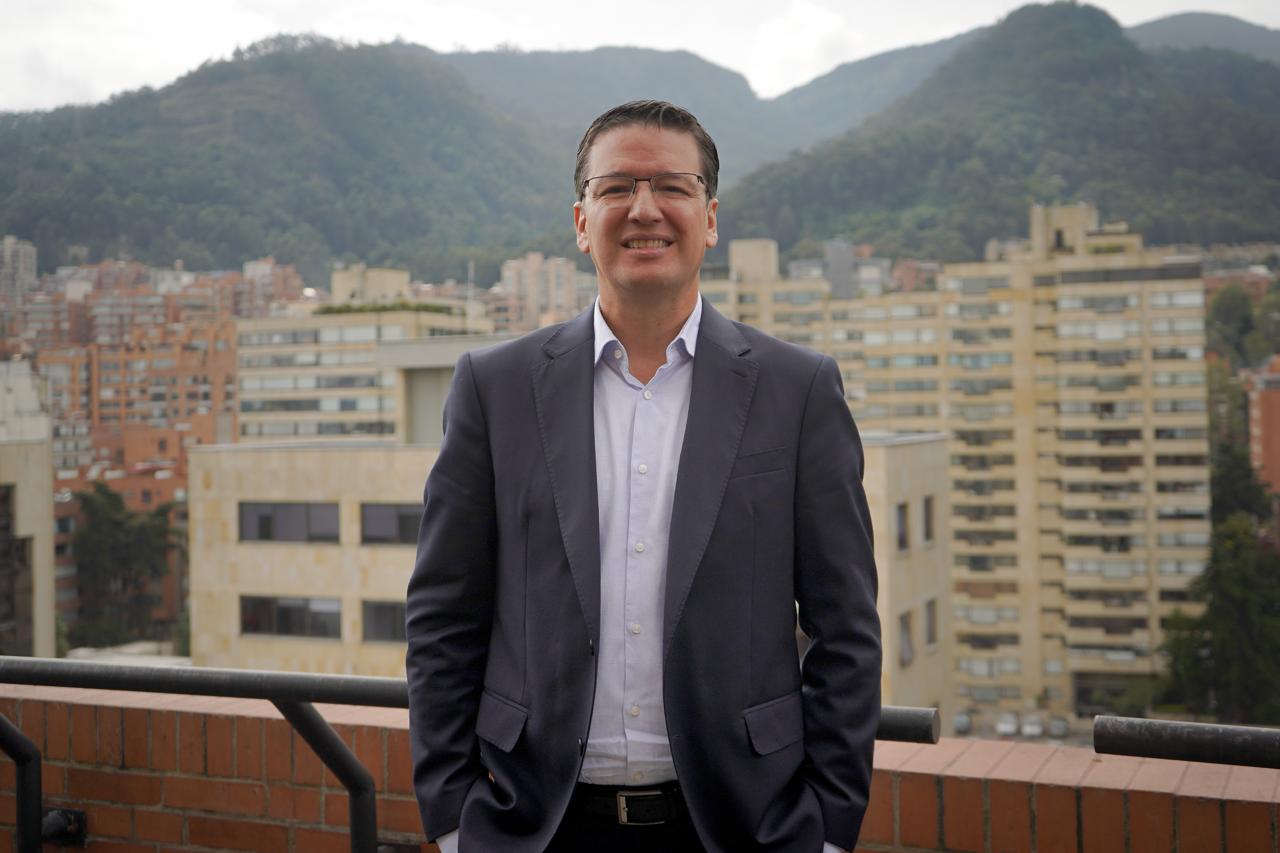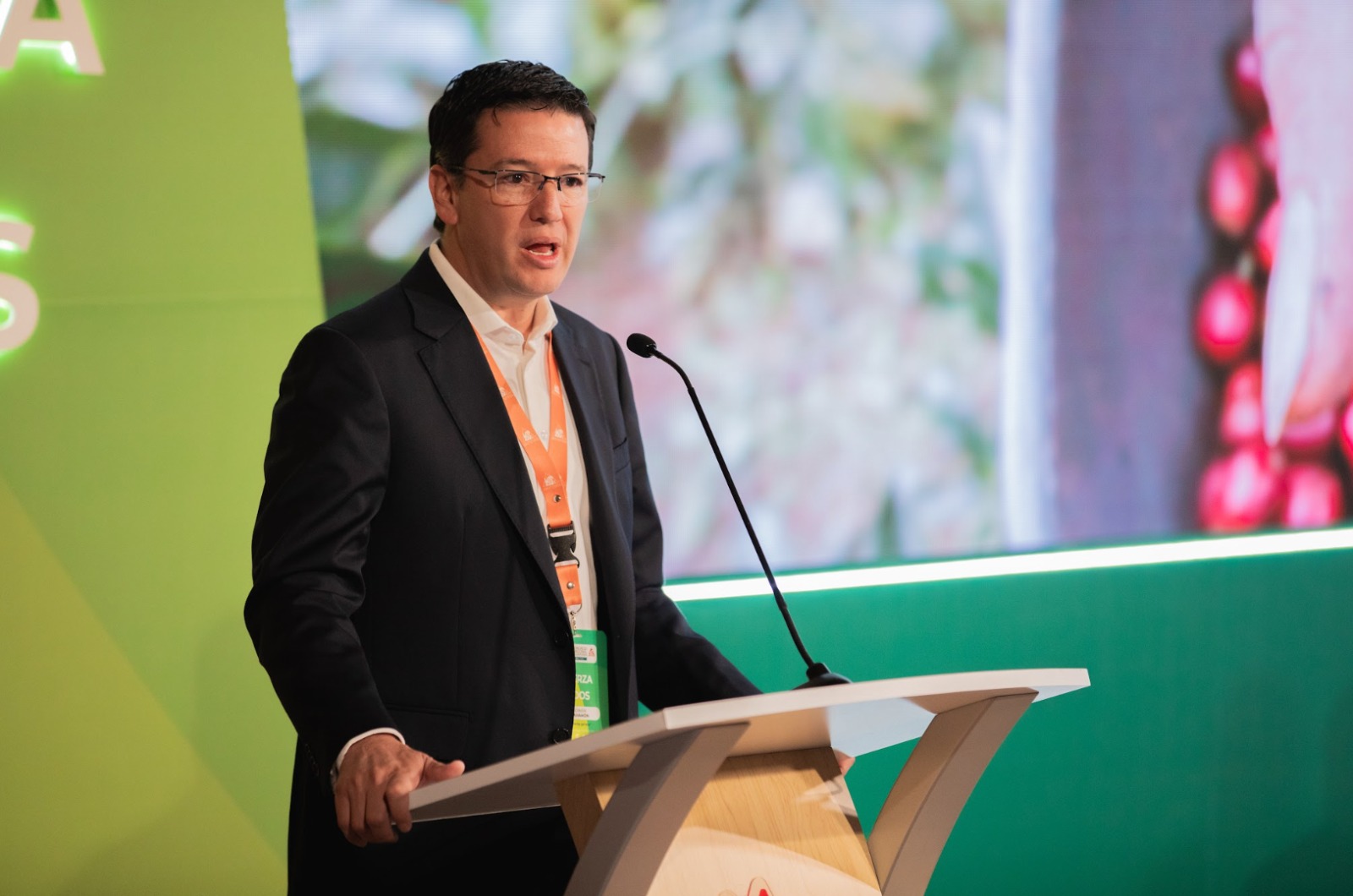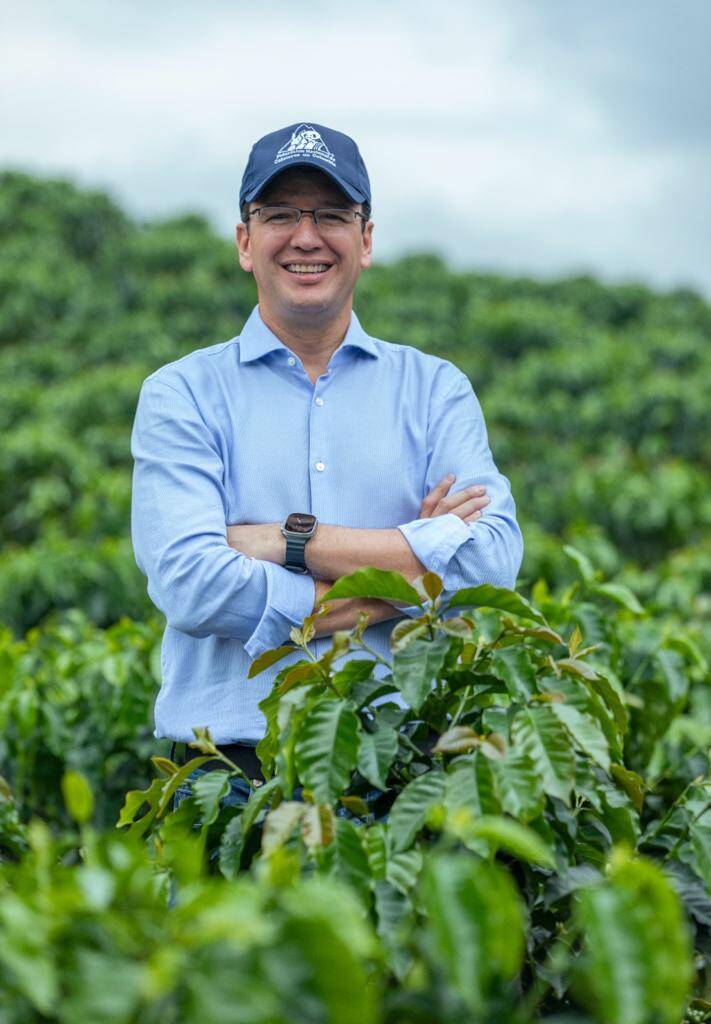'Tariff differences could open the door to coffee triangulation': Germán Bahamón, manager of the National Federation of Coffee Growers

Although Colombian coffee benefited from U.S. President Donald Trump's tariffs, Germán Bahamón, director of the National Federation of Coffee Growers (FNC), stated in an interview with EL TIEMPO that they cannot capture the demand that other countries could leave behind . He also warned that tariff differences could lead to triangulation, with other producers sending their merchandise to the United States through Colombia. "Triangulation could become unmanageable ," he asserted.

Germán Bahamón, manager of the National Federation of Coffee Growers. Photo: National Federation of Coffee Growers
The number of bags recorded reached 1.37 million in July due to the rainfall pattern, representing the highest production in the last 10 years. When it rains like this, it slows the ripening process, creating a delay in the production cycle. However, a decline is already being seen. Due to these same inclement rains, flowering has not occurred, and we expect the second-half harvest to total 7.1 million bags , which is one million fewer than the same period last year. We are already beginning to see the effects. Production over the last 12 months was 14.6 million bags, the highest in Colombia since 1992, and when a plant has given its best, it is physiologically exhausted.
The price of a load of coffee remains above 2.8 million pesos and has reached record highs throughout the year. Why is this? Right now, we see a perfect balance between supply and demand. The world consumes 177 million bags, which is the same as the number produced by our countries. This balance, with very low or almost zero inventories, is generating uncertainty. That's why the price on the New York Stock Exchange has been rising, and we've had an inverted curve in the markets for more than 18 months. What do we Colombians have to celebrate? That prices are finally fair. The industry always paid what it wanted.
In 2023, there was talk of a "coffee crisis" due to low prices, below 2 million pesos. Are coffee growers actually saving and investing for a rainy day? Yes, the best investment is fertilization, and that's what we've been telling coffee growers. Right now, what coffee-growing families are doing is paying off past debts, getting their coffee plantations ready, and investing. When a coffee grower decides to renew their coffee plantation, what they're making is an investment, because that percentage won't be producing in the next 12 months.

Germán Bahamón, manager of the National Federation of Coffee Growers, at the 93rd Congress of the union. Photo: National Federation of Coffee Growers
Last year, we achieved the highest coffee plantation renewal figure in the last 13 years, reaching 94,800 hectares. This year, we aim to reach 100,000 hectares, and we're already at around 55,000 as of July. This is thanks to the renewal resources provided by the federation.
So it is essential for coffee drinkers to prepare? Yes, what's happening is something completely different from what happened before. In the past, prices were bad. Production could increase, but costs were still high and profitability was low. However, today we have a coffee business that can be said to be profitable and that is generating prosperity and reinvestment. Proof of this is that in the last 18 months, coffee has been the protagonist of the economic recovery, with 21.9 billion pesos reaching coffee-growing families.
More than 60 percent of agricultural exports in June were accounted for by coffee exports. Where do you see opportunities? In the last 12 months, coffee exports have reached $5.4 billion. We've never had such a high value, and this has been achieved thanks to productivity combined with a good price. Furthermore, we've managed to diversify and reach more than 100 countries worldwide. As a federation alone, we accounted for 2 million bags in this first half of the year, making us Colombia's leading exporter.
We're entering South Africa, a market that's in need of specialty coffee products. We also have a presence in countries like Saudi Arabia, but without a doubt, the United States has been, is, and will continue to be the number one customer for Colombian coffee. Currently, 40 percent of Colombian coffee goes to this market. Because of this, the disruption caused by tariffs has us busy doing the right job.

Germán Bahamón, manager of the National Federation of Coffee Growers. Photo: National Federation of Coffee Growers
Yes, Colombia has a 10 percent tariff, but this is the baseline, the new zero. For example, Indonesia remained at 19 percent; Vietnam at 20 percent; and Brazil at 50 percent. Therefore, one could see that there is an opportunity because we have a differentiated tariff; however, I have urged caution because we don't have 5 million bags in our warehouses to capture the demand that another country is possibly leaving.
In the last 12 months, we exported 13.1 million bags to all destinations. We have clients with whom we have worked throughout our lives, and we will continue to meet their needs. We are reviewing the potential opportunities for tariff reductions in the medium term. However, in the short term, there is no possibility of taking action or declaring victory because we do not have the inventory to access immediately and meet new demand in a market like the US.
And what can be done in the long term to take advantage of these opportunities? We want to continue exporting to large roasters; however, we've found that there's a smaller market that's increasingly demanding specialty coffees with differentiated attributes, for example, those that reflect the profiles of each of our regions. In the first half of the year, we already sold 37,000 bags of specialty coffees . Furthermore, 65 percent of Colombian exports come with some type of added value.
In addition, we're exporting processed coffee to the United States, and Juan Valdez is consolidating its presence in Florida, where we're opening more and more stores. We also have an agreement with Green Coffee Company to enter supermarkets. Almacafé has also been working with Sofía Vergara's brand, which is reaching 1,700 Walmart supermarket points of sale. Our Buencafé factory, which produces freeze-dried instant coffee, is experiencing record sales, with 41 percent of its production exported to North America.
How is Juan Valdez's strategy working? Our focus is on the United States, Mexico, and Brazil. We want to consolidate our position in these three markets. Let's not forget that the United States is the world's largest coffee consumer, and Brazil is number two. That doesn't mean we're not present in other countries. For example, in Turkey, we'll end the year with nearly 40 stores. Also noteworthy are the recent announcements in Spain, where we, along with the Trinity Group, are evaluating the possibility of reaching all store-to-store and supermarket channels.
What challenges do you see with the European Green Deal for the coffee industry? The challenges remain, and we're still in talks, but as a federation, we have the opportunity to consolidate our voices, and that's what we've been doing. The vast majority of coffee produced in Colombia shows no evidence of deforestation. However, we're also seeking to review due diligence on labor issues with the European authorities.
How much are coffee imports reaching? Are they considered a problem for the industry? Imports are still low, having reached less than 650,000 bags of coffee in the last 12 months, but it is important to warn the government, as I have already done through Minister Martha Carvajalino, of the risk posed by tariff differences between countries.
I believe that when these types of differences exist, a perverse incentive is immediately created to seek triangulation. If the authorities don't address the issue and develop control tools, what could happen in Colombia is that products from other origins could be triangulated, passing through Colombia to reach the United States.

Germán Bahamón, manager of the National Federation of Coffee Growers. Photo: National Federation of Coffee Growers
These measures could open the door to ill-intentioned entrepreneurs, and that business could be detrimental to the quality of Colombian coffee. This market distortion poses an inherent risk. Triangulation could become unmanageable in Colombia. The country has agreements with other coffee-producing countries that allow for zero-tariff coffee imports.
Should a tariff be imposed, for example, on everything coming in from countries like Brazil? The only thing I have to do is warn the Government and authorities, such as the ICA or the DIAN, so that they take the necessary measures.
eltiempo





